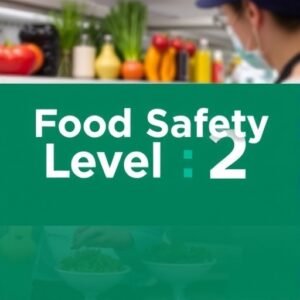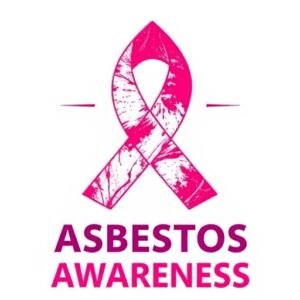The Food Safety Level 2 course is a comprehensive training program designed to teach individuals working with food how to handle, store, and prepare food safely. This course is suitable for anyone involved in food production, catering, hospitality, or retail environments. It helps learners understand the importance of maintaining high standards of food hygiene to prevent foodborne illnesses, which can have serious health and legal consequences for both customers and businesses.
Key Topics Covered in the Course
- Introduction to Food Safety and Hygiene
The course begins by explaining the importance of food safety, including the risks associated with poor hygiene and improper handling of food. It highlights the various types of contamination—biological, chemical, and physical—that can occur during food preparation and handling. Participants will learn the principles of food safety and the role they play in ensuring food is safe for consumption.
- Contamination and Cross-Contamination Prevention
Foodborne illnesses are often caused by contamination, so it is essential to understand how to avoid both contamination and cross-contamination. The course covers safe practices for handling raw and cooked foods, as well as the correct cleaning and sanitizing techniques for utensils, equipment, and food preparation areas. It emphasizes the importance of separating raw and ready-to-eat foods to prevent the spread of harmful bacteria.
- Personal Hygiene and Health
Personal hygiene is a key element of food safety. The course teaches workers the proper handwashing techniques, including when and how often to wash hands. Participants will learn the importance of wearing clean uniforms, using gloves, and adhering to strict hygiene standards to minimize the risk of contamination. The course also discusses the role of employees’ health in food safety, explaining when it is inappropriate to work with food if someone is ill.
- Food Storage and Temperature Control
Proper storage and temperature control are critical in preventing the growth of harmful bacteria in food. The course explains the importance of maintaining safe temperatures for both hot and cold foods. Learners will understand how to use thermometers to check temperatures, as well as the risks associated with incorrect storage methods. The course covers techniques for storing food safely, including correct labeling, rotation, and managing food expiration dates.
- Cleaning and Sanitizing Procedures
The course goes into detail on effective cleaning and sanitizing procedures, which are vital in maintaining a hygienic food environment. Participants will learn the difference between cleaning (removing dirt) and sanitizing (removing harmful microorganisms). The course teaches the correct methods for cleaning surfaces, equipment, and food handling areas to reduce the risk of contamination.
- Legal Requirements and Food Safety Legislation
The Food Safety Level 2 course ensures that workers are familiar with the relevant food safety laws and regulations. This includes understanding food safety legislation, such as the Food Safety Act 1990 and the EU Hygiene Regulations, which set out legal obligations for food businesses. The course explains the responsibilities of food handlers and employers in complying with food safety standards, ensuring workers understand the importance of keeping up-to-date with regulations and best practices.
- Food Allergens and Sensitivity
The course also addresses food allergies and intolerances, which are increasingly common in today’s society. Participants will learn how to identify, manage, and label allergens correctly. This is crucial for protecting consumers who may have severe allergic reactions. The course covers the requirements for allergen information to be communicated to customers, particularly in food service settings.
Why Take the Food Safety Level 2 Course?
- Prevent Health Risks: By understanding food safety principles and practices, workers can prevent contamination and foodborne illnesses, protecting the health of consumers.
- Ensure Legal Compliance: This course helps businesses comply with local, national, and international food safety regulations, avoiding potential fines or legal action.
- Enhance Food Quality and Reputation: Food safety is directly linked to the quality of food and the reputation of food businesses. Safe practices can lead to better quality food and increased customer trust.
- Boost Career Opportunities: Completing the Food Safety Level 2 course can enhance a worker’s qualifications, making them a valuable asset to employers in the food industry. It provides essential knowledge that is often a requirement for jobs in food handling, preparation, and management.
Who Should Take This Course?
This course is suitable for anyone working with food, including:
- Catering and Hospitality Staff: Those working in kitchens, restaurants, hotels, or any food service industry where food is prepared and served to the public.
- Retail Workers: Employees in grocery stores or supermarkets who handle food products.
- Food Manufacturers: Workers in food production and packaging industries.
- Food Business Owners: Managers or owners of food establishments looking to ensure that their business complies with food safety regulations.
Note: We offer the certain courses in partnership with leading training providers to offer the best learning experience and competitive pricing. For more information regarding course availability, enrollment, and pricing, please contact us or visit our Linkedin page. Our team is available to assist with any questions you may have regarding the course content or the registration process.







